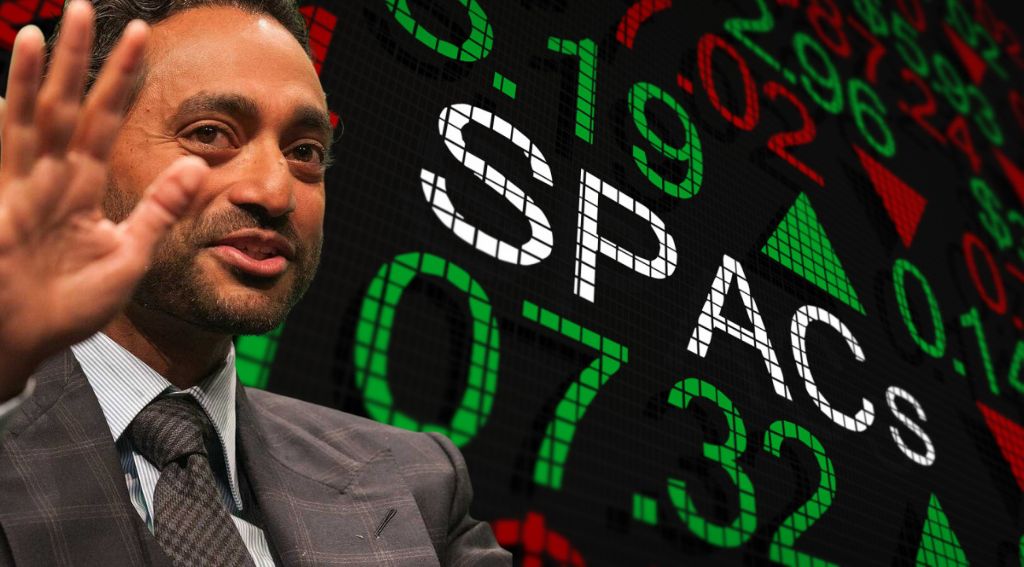AIBC Forex: Chamath Palihapitiya’s SPAC empire crumbles, leaving investors in shambles

In the high-stakes world of venture capital and IPOs, few names carried as much weight as Chamath Palihapitiya, often referred to as the “King of SPACs.” However, recent events have shattered the illusion of invincibility surrounding this high-profile investor, as he presided over a series of ill-fated Special Purpose Acquisition Company (SPAC) Initial Public Offerings (IPOs) that collectively lost his investors over US$12 billion.
SPACs evolved since the 90s
Today, the enterprise values of two of his most prominent SPACs, Clover and Akili, have dwindled to zero, while Virgin Galactic’s stands at a mere $100 million. Those who invested $100 into each of Chamath Palihapitiya’s SPACs at their peak in December 2021, would now be facing a staggering 73 percent loss—a dismal performance that lags behind the S&P 500 (-9 percent), all SPACs (-32 percent), Bitcoin (-44 percent), and even the infamous meme stock GameStop (-54 percent). This stark contrast to the successes of legendary investor Warren Buffett, who managed to generate a positive return of 22 percent during the same period, has left many in bewilderment trying to work out what went wrong.
Chamath Palihapitiya’s SPACs have underperformed
The underwhelming performance of Chamath Palihapitiya’s SPACs serves as a stark reminder of the dangers and risks of speculative investing and the destructive power of poorly constructed incentives. SPACs, which were the darlings of Wall Street during the stock market frenzy of 2020 and 2021, were often hailed for “democratizing” access to privately held unicorn companies that had delayed going public due to the cumbersome IPO process. The concept behind SPACs is relatively straightforward: sponsors first take a shell company public through an IPO, typically raising hundreds of millions of dollars in proceeds. Subsequently, they seek out promising unicorn companies to merge with the shell company, effectively taking them public without the traditional IPO hurdles. In return for orchestrating this process, SPAC sponsors receive founder shares equivalent to approximately 20 percent of the initial capital raised—sometimes amounting to tens of millions of dollars.
Creating demand for founder shares
However, this is where the problem lies. SPAC sponsors are lavishly compensated regardless of the long-term performance of the companies they take public. Their primary task is to entice investors to buy into the vision of these target companies, thereby creating enough demand for their founder shares to sell profitably. This misalignment of incentives can lead to a situation where sponsors prioritize short-term gains over the sustainable success of the companies they acquire.
Chamath Palihapitiya’s remarkable ability to play the financial markets like a skilled poker player allowed him to capitalize on these deals, pocketing a substantial US $750 million in profits. Yet, the unfortunate truth is that many investors who believed in his vision and went “all-in” were left with substantial losses. The allure of rapid returns and the promise of taking part in the next big thing clouded the judgment of many, resulting in substantial financial setbacks.
King of SPACs
The rise and fall of Chamath Palihapitiya, the once-celebrated “King of SPACs,” offers a cautionary tale about the perils of investing in speculative instruments without a clear understanding of the underlying risks. The SPAC frenzy of 2020 and 2021 may have democratized access to private companies, but it also exposed investors to substantial vulnerabilities and the danger of poorly aligned incentives. As the dust settles, the financial world watches closely, hoping to learn from these events and navigate the turbulent waters of investment with a clearer perspective on risk and reward.
Traditional IPOs vs SPACs
In conclusion, the allure of SPACs as a means of expediting the path to public listing and potentially achieving higher valuations was undeniably captivating during the stock market boom of 2020/2021. SPAC transactions often take as little as three to five months from inception to completion, in stark contrast to the protracted timeline of traditional IPOs. Moreover, the ability to negotiate binding valuations and the promise of enhanced transparency appeared as significant advantages for companies considering the SPAC route.
However, as we’ve seen through the case of Chamath Palihapitiya and the broader SPAC ecosystem, these advantages can come at a steep cost. The misalignment of incentives, where sponsors are handsomely rewarded irrespective of long-term performance, has raised concerns about the sustainability of SPAC-driven growth. The focus on short-term gains and the risk of overvaluing companies in the IPO process has led to significant losses for investors who believed in the SPAC hype.
Sponsors and investors navigate the complex world of SPACs and approach these transactions with a clear understanding of their implications and risks. Negotiating favourable terms that align the interests of all parties involved is essential for the success of SPAC mergers and transactions. While SPACs have evolved considerably, their future remains attractive to investors and startups. It is most likely that the story of SPACs will keep evolving and that they are likely here to stay.
Related topics:
Former advertising executive is Twitter’s new CEO
AIBC Insight: Impact of fintech on Commercial Real Estate
Abu Dhabi Securities Exchange welcomes first listing from UAE






